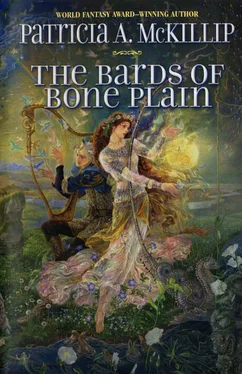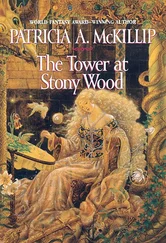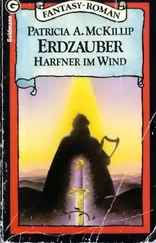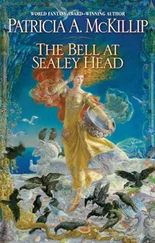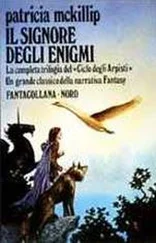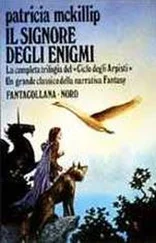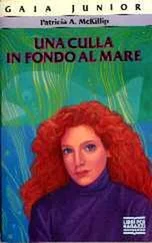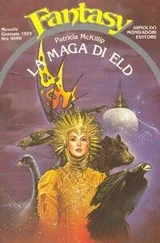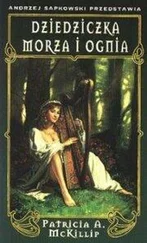“Listen to the magic,” Declan insisted. “He uses those words I taught you in his music.”
“How—”
“Learn that from him. You know the words; you have the power. Learn to use it. I can’t teach you that. You must find it in yourself. You were born with it. I breathe the air of this land, I walk on its earth, but I was not born out of it, rooted in it, the way you and Welkin are. I carry the powers, the music I was born with; there are overtones, undertones I will never hear in yours. You must learn from him, now. He knows the language of your power.”
“I don’t understand,” Nairn said, genuinely bewildered. “He wants to be King Oroh’s bard. He has what the king needs. He’s why you called this competition. Why are you so afraid he’ll win?”
Declan, pacing restlessly through his private chamber like an empty vessel pushed back and forth on a roil of tide, swung impatiently. “Use your head. You saw those words on his harp. He’s something ancient pulled out of this plain by words I’ve wakened and by the hope of another chance.”
“A chance.”
“A chance to die, if we are fortunate. That could be all he wants. But I doubt it. This time, I think he wants everything he failed to get the first time. He wants all the powers within the Three Great Treasures. All that, he will take to the court of this foreign invader, and he will bring it down with a single plucked string.”
Nairn swallowed something like an old, dry twist of rootwork in his throat. He backed a step or two until he felt the solid stones, and leaned against them.
“What are you saying?” His voice gyrated wildly around his question. “Are you saying that it’s true? That old poem you gave us?”
“What do you think poetry is?” Declan demanded. “Something decorative? A pretty tapestry of words instead of threads? Tales that old stay alive for a reason. I think that, who knows how long ago, this harper challenged himself against the Three Trials of Bone Plain. He lost all three. The poem is very clear about what happens to the failed bard.”
“No song,” Nairn whispered numbly. “No peace. No poetry.”
“No end of days.”
“He has—he—you heard him play. He did not lose that power.”
“Didn’t he?” Declan stopped pacing finally, amid a rumpled froth of sheepskin. “I think it’s in his harp, that power. Maybe he stole it; maybe he found it somewhere; it was given to him out of pity by a dying bard. I think if he tried to play any other instrument, even a simple pipe, his notes would wither into breath. Harp strings would warp out of tune; reeds would dry and split.”
“But he can still—you saw him vanish into air!”
“He’s been around a very long time. Who knows what he’s been able to learn through the centuries?” He shook his head. “Maybe we did not translate the words precisely—they mean other things as well—Who knows?” He paused, gazing heavily at the shaken Nairn. “Suppose he does open the way back to that plain, that tower? What would you do to possess such gifts? If the heart of this land opened itself up and showed you what you could be, offered you all the songs it holds, would you refuse? Or would you do exactly what you’ve done since the day you ran away from that pigsty? You have followed the music. To this plain. To this challenge.” He turned abruptly again, without waiting for Nairn’s answer. “Go down, listen again to that harper, and think about this: What would you do to play like him? If you can’t answer that, he will take everything that I chose for you.”
Nairn took himself wordlessly out of the tower and down the hill to the plain, which glowed back at the stars with its own constellations of fires. He picked Welkin’s music easily out of the merry confusion of sounds. He circled it warily, again and again, pacing as Declan had, listening from a distance until gradually he came to realize that his circles spiraled more and more into themselves. He orbited the last around the great crowd sitting and listening to Welkin and one of the court bards, who were exchanging songs. There he came to a halt behind the gathering.
Welkin played a complex accompaniment to a courtly love ballad. Even in the firelight, he seemed something imprecise: a smudge, a shadow, nothing to snag the eye or linger in the memory. The court bard, a tall, sinewy, gold-haired man from one of the richer houses in Waverlea, wore a robe of many colors trimmed with whorls of gold thread that matched the pattern of gold inlay over his harp. He had other instruments with him: a long ebony pipe, a small drum, a triple-mouthed horn. He shifted from one to another easily as he sang: he did not carry all his music in his harp. He played songs Nairn had barely learned, on instruments as pure as any he had ever heard.
All that the court bard had, he himself could possess, Nairn knew. Wealth and dignity, fine instruments, so much talent he could afford to wear that expression of geniality and encouragement toward stray harpers out of the forgotten corners of the land. He only had to win the competition as well as whatever ancient, dormant challenges Welkin seemed determined to bring to life with his playing.
A tower, a cauldron, a stone ... What could be so difficult about figuring out what they wanted? They were words in a poem; such words never meant exactly what they seemed. If there were rewards, then the Trials must not be impossible. If they were possible, then why not for Nairn, the Pig-Singer, who had come as far as possible from his past and needed a place to go next?
The lovely ballad ended to much clapping and inarticulate cries. The court bard smiled, gestured to Welkin, and exchanged his harp for his pipe. Welkin paused, pulling a song out of the ancient barrow of his mind. He seemed to notice, then, the solitary figure standing beyond the crowd. He shifted; a reflection of fire glanced through his eyes like a smile.
His first note melted through Nairn’s heart with all the sweetness of a love he had never felt; his second brushed Nairn’s lips like a kiss; his third ran down the stubborn sinews at the backs of Nairn’s knees and he sank like a stone to the grass, helpless as a child before such beauty, and as grateful for the gift.
Words echoed through his memory, then: Declan’s voice.
It’s in the harp. His power.
In the harp.
Nairn blinked, found himself hunched over, nose to petal with a wildflower folded up under the moonlight. He straightened slowly, feeling foolish and still entirely helpless against such art. When he could stand again, he slunk away, went downriver, far from the harper and his wily, dangerous harp, to see what enchantments he could get out of his own instrument. Beyond waking a few toads and causing sundry rustles in the underbrush, he couldn’t claim much.
The next day, the harper sent him a clearer challenge.
The first day had whittled away at the contenders: minstrels who sang bawdy ballads on street corners, in taverns, for what coins they could get, novices in the art with lofty ideas of their talents, bards from the manses of wealthy merchants and farmers, where the same songs had been played for decades on instruments handed down through generations. These yielded to the great court bards, to a handful of Declan’s students, and to skilled wanderers like Welkin. Of those who had been winnowed out of the competition, none left; they all stayed on the plain to listen.
Nairn, Shea, Osprey were still among the contenders on the second day. Other students had played at Declan’s insistence on the first day, for the experience, he told them. He had divided the unwieldy number of would-be bards into three groups on the first day; none of the students had had to play against Welkin.
On the second day, the three groups had pared themselves, by general consent and Declan’s judgment, into two. Nairn performed in one, Welkin in the other. Competition was fierce; court bards pulled out every instrument they had, challenged others with well-honed skills and intricate songs that ranged through the entire history of the five kingdoms. Nairn countered with songs grown out of the mists and seas and rugged valleys of the Marches that no court had ever heard. Still, he was surprised at the end of the day to find himself standing among the competitors, along with Osprey, a dozen court bards, and Welkin.
Читать дальше
